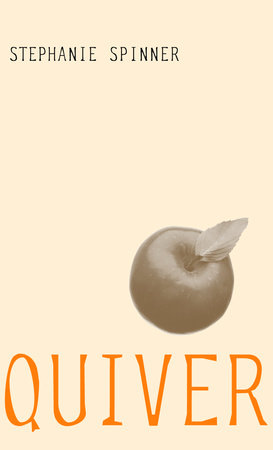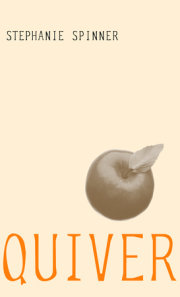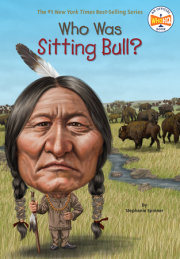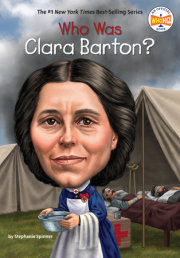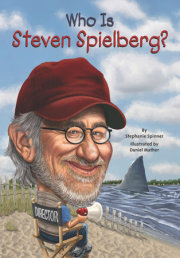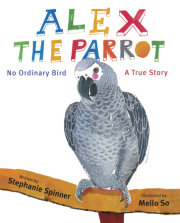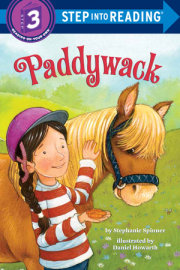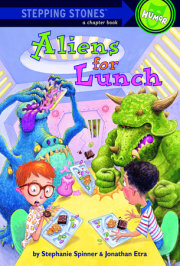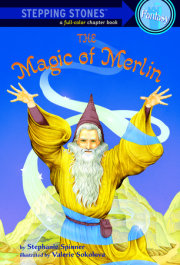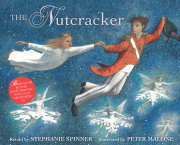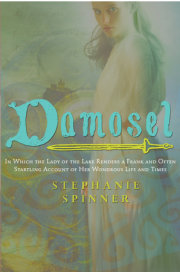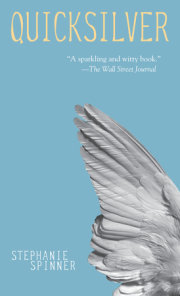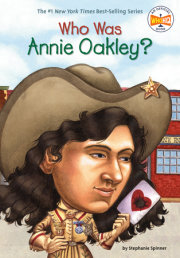ONE
The caw of a crow warned me first. Then it was their smell--so rank it made my eyes water.
I had never been so close to centaurs before, though of course I had seen them. There were many in my native Arcadia--wild, filthy creatures, notorious for their lack of restraint, and far more dangerous than satyrs. When they drank--as they often did, to excess--they would rape and beat whatever women they could find, which was why women never ventured into the forests alone.
I am not alone, I reminded myself, I am with the Hunt, in Calydon.
Yet the centaurs were at hand, and the other hunters were too far off to be of help, should I cry out.
I would not; I would rather die.
They came at a gallop, legs churning, chests heaving.
I could run as swiftly as they. Indeed, I could outrun most creatures, human or otherwise. But there were two of them, and they were lust-maddened.
I drew my bow.
On they came, one with a torn ear, the other with a bulbous, red-veined nose. They were large and coarse and frightening, with none of the capering insolence that made their goat brothers almost endearing. Both had rough piebald coats, long, matted tails, and hooves as big as mallets.
Their stink was fearsome.
I shot the one with the red nose first. He reared. I hit him again, and he fell, snorting blood. I loosed two arrows, then three, at the other. He was so close when he toppled that I could feel his heat. He cursed me, groaning and choking. I backed away. They were huge creatures, and their great hooves kicked out as they died.
"Safe crossing," I whispered.
Then I heard a soft whistle that rose and fell like a question--Meleager, looking for me.
I signaled back and he emerged through the trees. As I moved toward him, I saw the concern in his dark eyes fade, and he smiled broadly.
He is relieved, I thought, knowing it was more than relief that lit up his face. We had met only days before, when the Hunt assembled at his father's palace, and since then Meleager had paid me many small courtesies--inquiring after my comfort whenever we chanced to meet, asking my opinion of his weaponry, introducing me to his beloved hounds. I required no more than any of the men, yet he sought me out time after time.
I was flattered by his interest, for I liked him. He was straightforward and guileless, a man who preferred his hounds to his father's courtiers. He was a decent hunter, too--very good with the javelin, and passable with a bow. The dark stories about his fate--some said he carried a birth curse--made me feel a kind of kinship with him.
Nevertheless, I had no desire for romantic entanglements. Like the men, I was here for glory. Moreover, I had taken a vow of chastity in honor of Artemis, and I intended to keep it. Seeing the yearning in Meleager's eyes, I resolved to tell him of my vow as soon as I could.
I raised a finger in warning. I had lost the boar's scent, but he was cunning, and might be nearby. The sight of the slain centaurs stopped Meleager, but when he looked at me inquiringly I shook my head; explanations would have to come later. I started back up the hillside and he followed.
Before long we could hear the others thrashing through the trees. Then all twenty-seven members of the Calydonian Boar Hunt came marching downhill in crescent formation, armed to the eyebrows. No living thing in the forest could miss hearing them, or seeing them, either. They moved without stealth, as if they were storming the walls of some hapless enemy city.
I was certain that the boar would attack soon, and now, as the great hunt party advanced, I knew I had missed the chance to flush him out myself. I might have done it, I thought, if not for those stinking centaurs. They had likely cost me the head and pelt, and now the prizes of the hunt would go to one of the men. More than half of them were Argonauts--the intrepid, battle-scarred band who had sailed with Jason in search of the Golden Fleece. The adventure had made them heroes, and in the manner of heroes, each one of them considered victory his due.
"Why did you leave?" whispered Meleager.
"I smelled him--" Then it came again, a heavy mix of smoke and fat and marshland mud, and with it, tremors like those that shake the earth before it rips apart. He was very near.
The hounds bayed. Then one of them screamed--a death cry. Meleager froze. His Laconian hounds were very dear to him.
"There!" I pointed to a place fifty paces off.
He was bigger than a bull, with bristles like skewers and filthy tusks as long as javelins. Steam came off his body like the foul nimbus of some underworld being; even in morning light, he seemed to stand in gloom. The hound on his tusk was dead, and he rid himself of it impatiently, tossing his massive head and stamping so that the ground shook. Then he wheeled--swiftly for all his bulk--to regard us with eyes as small and red as pomegranate seeds. It was the look of a beast without predators, who had never felt fear.
My arrow was nocked, but Echion ran at the boar shouting, and when he flung his spear, I hesitated. Even as the spear fell short, the boar charged. Echion's twin, Erytus, along with Jason, Eupalamus, and Iphicles, scrambled away as the creature hurtled at them like a rock from a catapult, crushing everything in its path. It trampled hounds, flattened trees, and flung Eupalamus and Iphicles aside as if they were made of straw.
Then Jason threw, but his spear went wide. He flattened himself on the ground, drawing his great shield over him as if he were a giant tortoise. Erytus was nimble also, using his long spear to vault out of the beast's way, and landing in a tree. Young Hippasus lacked the experience--and the luck--of his comrades; the boar veered suddenly and gored him before he could escape. He fell and lay still, arms and legs askew.
Undaunted, Mopsus rushed forward. It was said he was gifted with the Sight, and could understand the language of the birds. Now he cried out to Apollo, Lord of the Silver Bow.
"If I have been your faithful worshiper, great Apollo," he cried, "grant me good aim!" He must have been heard; his spear flew straight and true.
Indeed, it should have killed the boar. Yet its jagged iron head came off in flight, and when its wooden shaft hit the boar's neck, it bounced to the ground as harmlessly as a broom handle.
Meleager hissed in amazement.
The boar grunted, flicking its tail.
An all-consuming lightness, like heatless fever, came over me. My skin prickled as if a storm were coming, and my hearing grew so acute that I imagined I could hear the slow lap and surge of blood under my skin. I knew the signs; I had known them since girlhood.
The goddess, I thought. She is here.
Apollo had heard Mopsus. But Artemis, who had sent the boar to plague King Oeneus for failing to sacrifice to her, even now intervened.
Goddess, I am yours, I murmured. If it pleases you, guide my hand.
The boar lowered its head to charge at Mopsus, and at that instant my shot came clear. Flying as if Artemis herself had loosed it, my arrow struck the boar's neck and pierced its bristled hide. Blood spurted where it hit. Whispering my thanks, I flushed with pleasure; there was honor in drawing first blood.
The beast shook its massive head, but the arrow stuck. Mopsus fled as the boar danced in fury, squealing.
"Do you see?" cried Meleager. His voice thrilled with such emotion that the shot might have been his. "Atalanta has hit the boar!"
Apollo: You might have let Mopsus take that shot, you know. He did invoke me.
Artemis: Yes, but she's been praying to me for weeks. I had to give it to her.
Apollo: Are you going to help her kill it, too? That would certainly cause an uproar.
Artemis: It would. But there are other, even more interesting possibilities. And the hunt is far from over.
Apollo: You frighten me sometimes.
Artemis: I'm your older sister. I probably should.
Copyright © 2002 by Stephanie Spinner. All rights reserved. No part of this excerpt may be reproduced or reprinted without permission in writing from the publisher.

